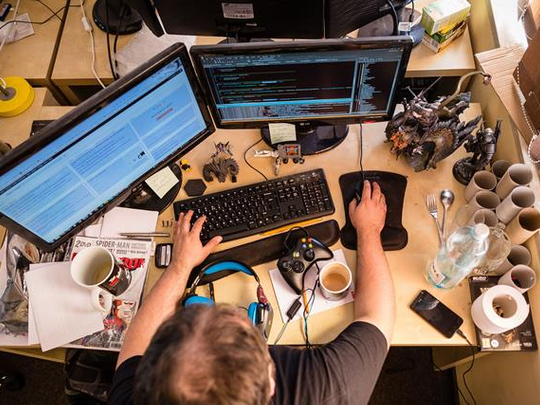
What is most similar between the Poles and the Punjabis? Well, according to Jerzy Pietrewicz, Secretary of State in the Polish Ministry of Economy, it is a spirit of entrepreneurship.
He visited the Indian state late last month to — as the Business Standard reports — “rewrite a new chapter of industrial growth with Poland offering the latest technology for the food processing industry”. Apparently, with Polish technology, Punjab could become a major food processing hub and meet the requirement of 50 per cent of Asia.
It’s not just in agriculture where Poland has advanced tech to share. The country has also become a potent destination for start-ups, software development, and video games. AngelList, which tracks start-ups worldwide, lists 675 for Poland, mainly concentrated in Warsaw and Kraków, but also flourishing in places like Wrocław, Gdańsk and Poznań. They cover everything from app development and cloud services to 3D printing and VR gaming. There’s even an Airbnb for artists.
Marta Stelmaszak, a UK-based online consultant who helps international businesses succeed in Poland, says on her website the Polish start-up scene has evolved over the years and may even come close to that of London or Tel Aviv. She adds that she relocated because she wanted to be an entrepreneur and, “Poland back then wasn’t the best place for young and brave start-ups.”
Stelmaszak believes education is one of the catalysts — a 2014 Pearson report ranked Poland 14 on the list of 50 countries in education. Poland also occupies the eighth spot for proficiency in English, ahead of Germany and Switzerland. “Owing to its good level of English, the Polish start-up scene can communicate with foreign investors and acquire foreign clients,” she adds.
This is reflected on the World Bank’s Ease of doing business index — Poland moved from 76 in 2009 to 32 last year.
A recurring charge levied against many Polish entrepreneurs is they think local. As Marcin Szeląg, a partner at Poland’s leading seed fund, Innovation Nest, says on the tech site Tech.eu, “Deciding to be local marginalises companies and forces them to be a small business right off the bat.
“Whatever the reason, it seems we are afraid of going global, which is an ingrained obstruction to building large tech companies.”
Szeląg adds that there are a few “positive pioneering examples” of Polish start-ups taking on the world. These include Brainly, a global network for students, while DocPlanner, a booking service for the medical industry, has wooed customers across Europe. Interestingly, Beacon Valley is its answer to Silicon Valley — it boasts some of the biggest names in wireless beacon tech, including Estimote, Ifinity and Kontakt.io. There is even a smart wallet coming out of the country, one that talks to your phone and sounds an alarm if you leave it behind.
Poland is also a significant market for video game development. Among the famous games are Dead Island, Dying Light and of course, The Witcher — the recently released third game of the series sold more than six million worldwide.
As Pawel Miechowski, senior writer for developer 11 Bit Studios told CNBC, “Maybe the success has something to do with the Polish mentality, because we’re very stubborn in proving that impossible is eventually possible. It’s impossible to do? Watch me!”



